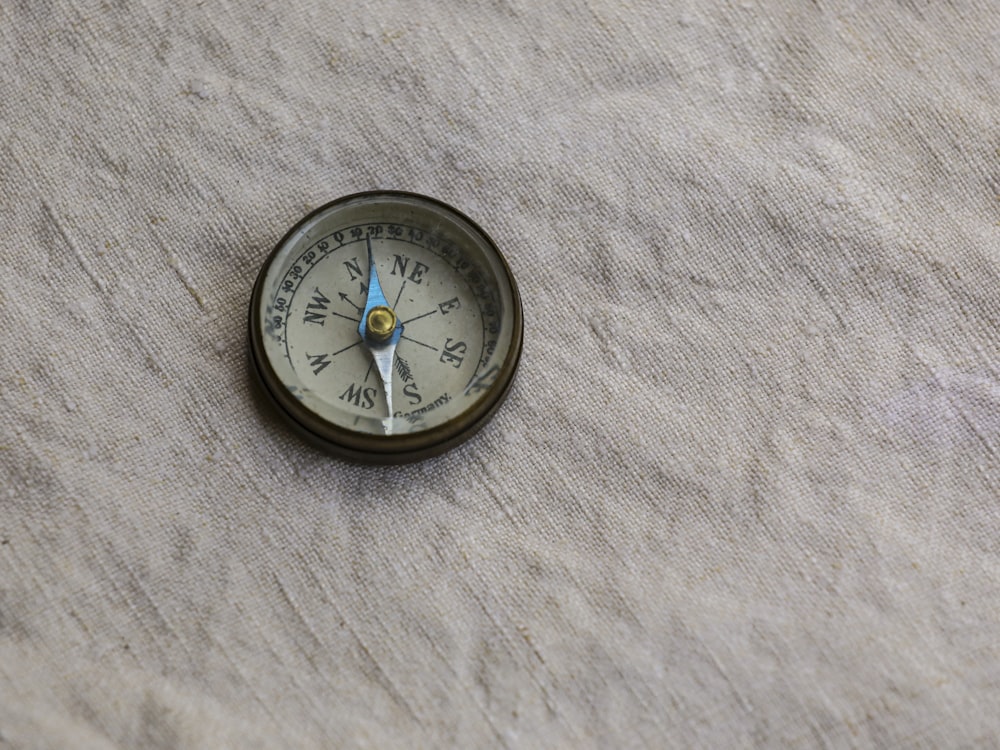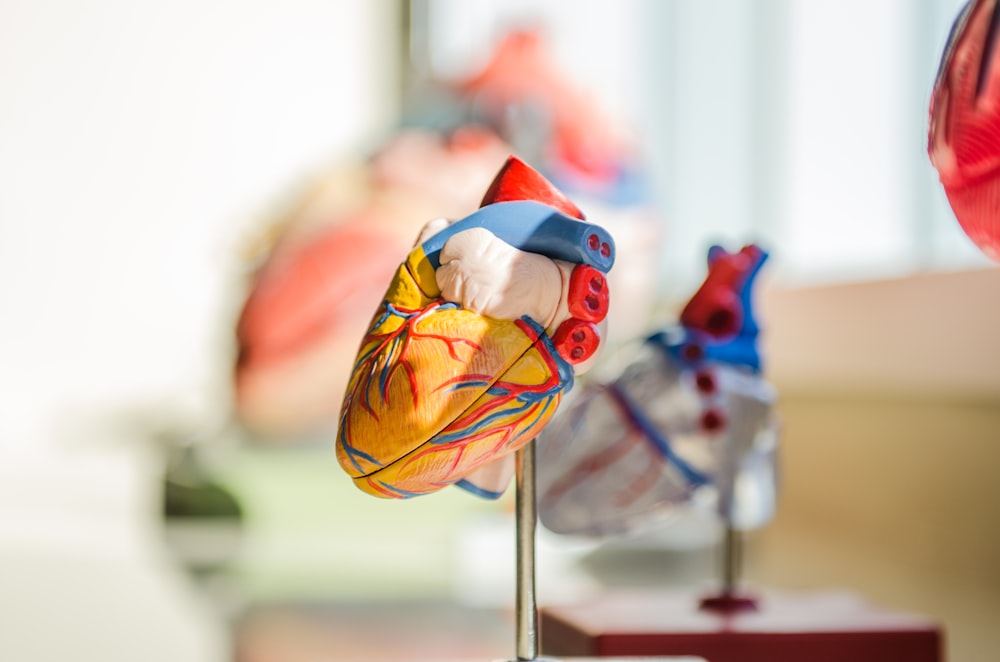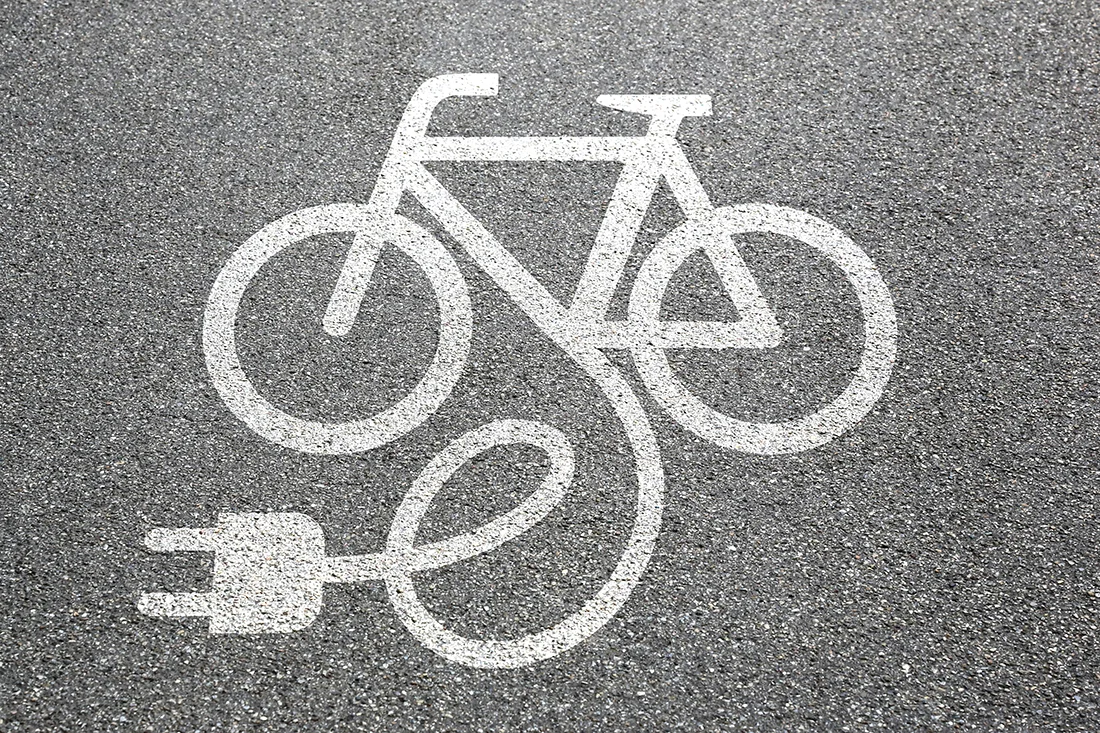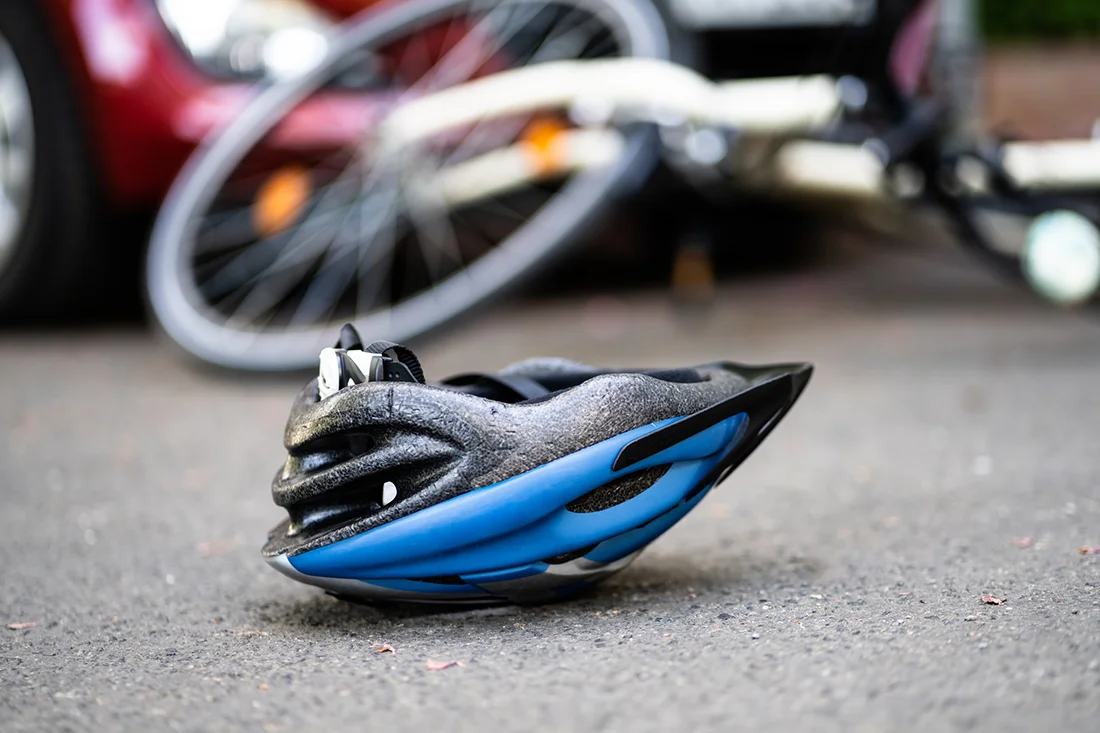Taking up cycling could be the best decision you ever make. Riding a bike will improve your health, help you save time and money, improve your social life, and do other good things for you.
Cycling is a uniquely popular physical activity around the world. People ride a bike for a plethora of different reasons — to get from one place to another, lose weight, have fun, exercise, or improve the environment.
No matter what your personal reasons might be, there’s no doubt that you’re making a good decision. Cycling is an easy activity that can be done by absolutely anyone and offers a host of health and other kinds of benefits to those who do it regularly.
Here are some of the most important cycling benefits in our opinion, that get us on the bike almost every morning.
Contents
- #1: Cycling Improves Mental Health
- #2: Great For Meeting New People
- #3: Boosts Focus and Concentration
- #4: Cycling Keeps the Lungs Strong and Healthy
- #5: Great Way to Explore New Areas
- #6: Cycling Is Excellent For Weight Loss
- #7: Riding a Bike Builds Muscle
- #8: Cycling Is Good For the Environment
- #9: Improves Balance, Coordination, and Posture
- #10: Cycling Helps You Sleep Better
- #11: It’s Easy on the Joints
- #12: A More Efficient Way of Commuting
- #13: Cycling Fights Depression
- #14: Cycling Improves Spatial Awareness and Navigation Skills
- #15: Reduces Cancer and Heart Disease Risks
- #16: You Can Have an Extra Snack
- #17: Cycling Can Replace Other Harmful Addictions
- #18: Boosts the Immune System
- #19: Become a Happier Person (It’s Science!)
- #20: Cycling Improves Your Sex Life
- #21: Anyone Can Do It
- FAQ
#1: Cycling Improves Mental Health
Due to the fast-paced nature of modern life, many people struggle with mental health and stress.
A study from 2019, conducted in the UK, shows that cycling has a positive effect on cognitive function and mental well-being. The study tested the premise on older adults, but the findings can be applied to younger individuals as well.
Interestingly, the study also showed that both traditional bikes and e-bikes had positive effects on cognitive function and well-being. This suggests that both physical activity and engagement with the outdoor environment play an important role.
If you’re cycling that means that you will be spending more time outside, getting new experiences, interacting with different people, and getting more sun. Also, riding solo is a form of meditation that gives you a chance to process your emotions and daily stresses.
Taking up cycling as a hobby also gives you a new sense of purpose and something to learn about and do in your free time. It will also get you away from social media which is known to have a detrimental effect on mental health.
#2: Great For Meeting New People

One of the biggest benefits of cycling is that you can do it alone, with one or two friends, with your family, or in a huge group that numbers dozens.
If you want to meet new people, it’s good to know that cycling is a great way to do that. Most areas have cycling clubs that you can join and interact with like-minded individuals that share your passion for bicycles.
The weekends are usually reserved for long group rides through scenic areas, which is everyone’s favorite. You can chat with other people while spinning the pedals and a few cafe stops are part of the plan as well.
The cycling community is strong online as well. If you are new to cycling and you know little about bikes and maintenance, it’s pretty easy to find useful advice from experienced cyclists who are generally friendly to newcomers.
Socializing through cycling can boost your health as well, since spending time with friends releases the hormone oxytocin, which fights anxiety and depression, and improves the overall mood.
#3: Boosts Focus and Concentration

Anyone who has ever gone for a bike ride must have felt the brain fog lifting and focus and concentration improving. Science shows that a bicycle ride will not only make you feel better mentally, but it will make you smarter as well.
A study conducted at the University of Illinois showed that the hippocampus of participants grew by two percent and that their memory and problem-solving skills improved by 15 to 20 percent after only six months of cycling daily. Additionally, cyclists reported an improved focus and an improved attention span.
Cycling also boosts blood flow to the brain which brings fresh oxygen to the cells and helps regenerate neural receptors that are crucial for maintaining healthy brain functions.
Exercise, in general, has always been linked to good brain health and it is well-known that being physically active can help you counteract dementia and Alzheimer’s disease.
So if you want to do better in school or at work, be more productive, and boost your memory, make sure to ride a bike on a regular basis.
#4: Cycling Keeps the Lungs Strong and Healthy
Traffic pollution in the cities is a common reason that many people use to explain why they don’t cycle more. It might be hard to believe, but research shows that cyclists are actually exposed to fewer amounts of harmful fumes than those who travel by car or by bus.
Cyclists are usually positioned higher than car drivers, which keeps them further away from sources of exhaust fumes.
The reason is simple: when you drive a car to work, you spend a lot of time just sitting in traffic jams surrounded by vehicles that produce exhaust fumes. Your car does not stop these fumes from entering the cabin, so you end up inhaling them.
On the other hand, cyclists in traffic are usually constantly on the move, so they spend less time breathing in toxic evaporations.
Therefore, one of the cycling benefits is that it can improve your lung health significantly by protecting you from dangerous fumes. Lung health is also improved through the cardio exercise that cycling provides that develops heart function and sends more blood to the lungs.
#5: Great Way to Explore New Areas
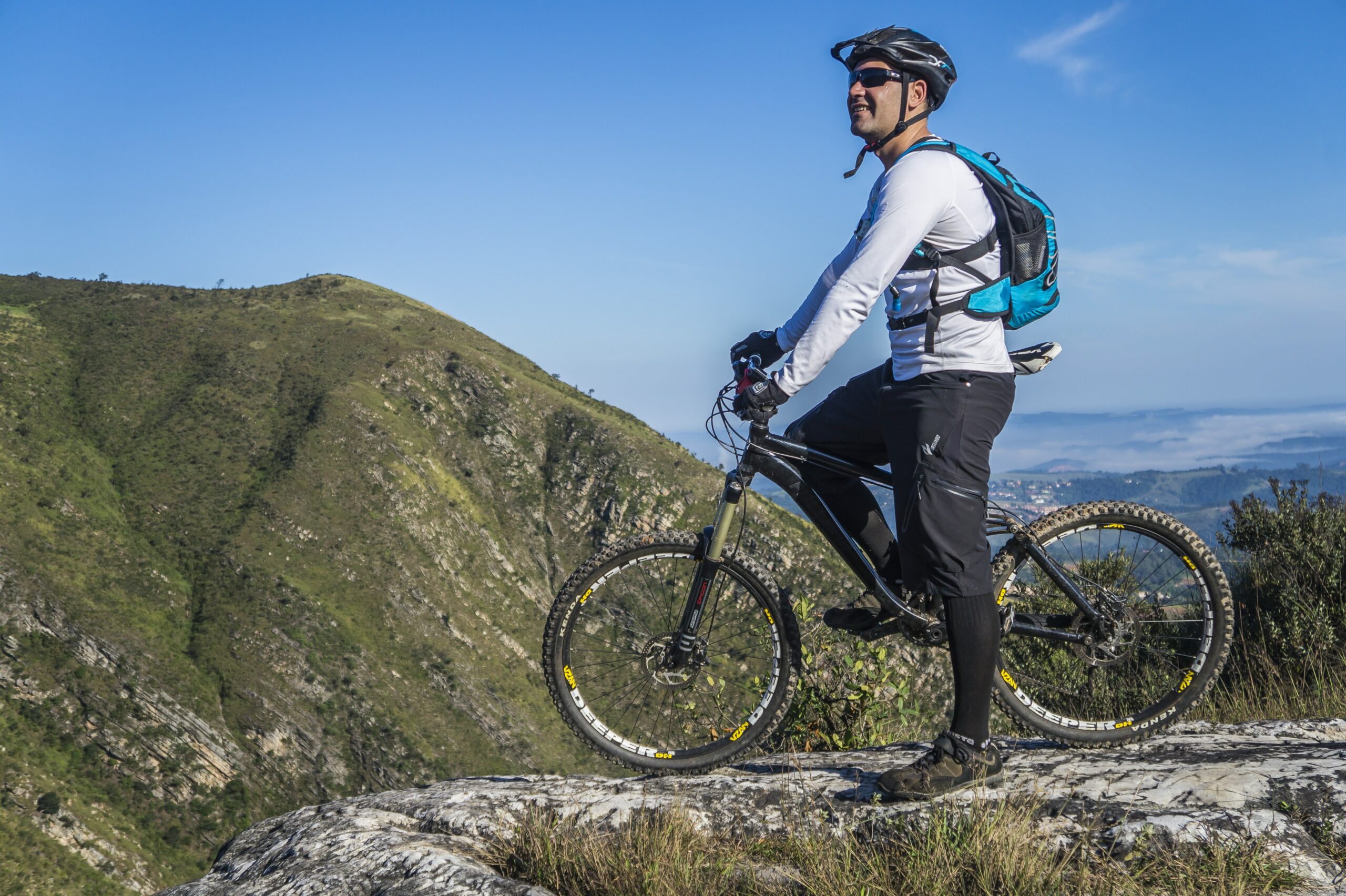
Cycling is a fun and exciting way to travel and explore new areas. Personally, unless I rode a bike, I would have never visited many of the most beautiful remote places in my area or enjoyed some of the most scenic views around.
Related: Cycling Tour Guide: Across Estonia in a Week
When you ride a bike, you’re always looking for small roads away from popular routes busy with cars, trucks, and buses. This quest often takes you to remote areas with welcoming people and beautiful sights.
Moreover, by taking your bike off the beaten path, you will be able to explore areas that are not accessible by car. No matter where you live, there are bound to be miles upon miles of forest roads and tracks that you can ride on your mountain bike or gravel bike.
Plus, riding a bicycle means that you can take your time to enjoy those new areas, stop as many times as you need, and take as many photos as you want. That’s not something that’s easy to do with a car.
#6: Cycling Is Excellent For Weight Loss
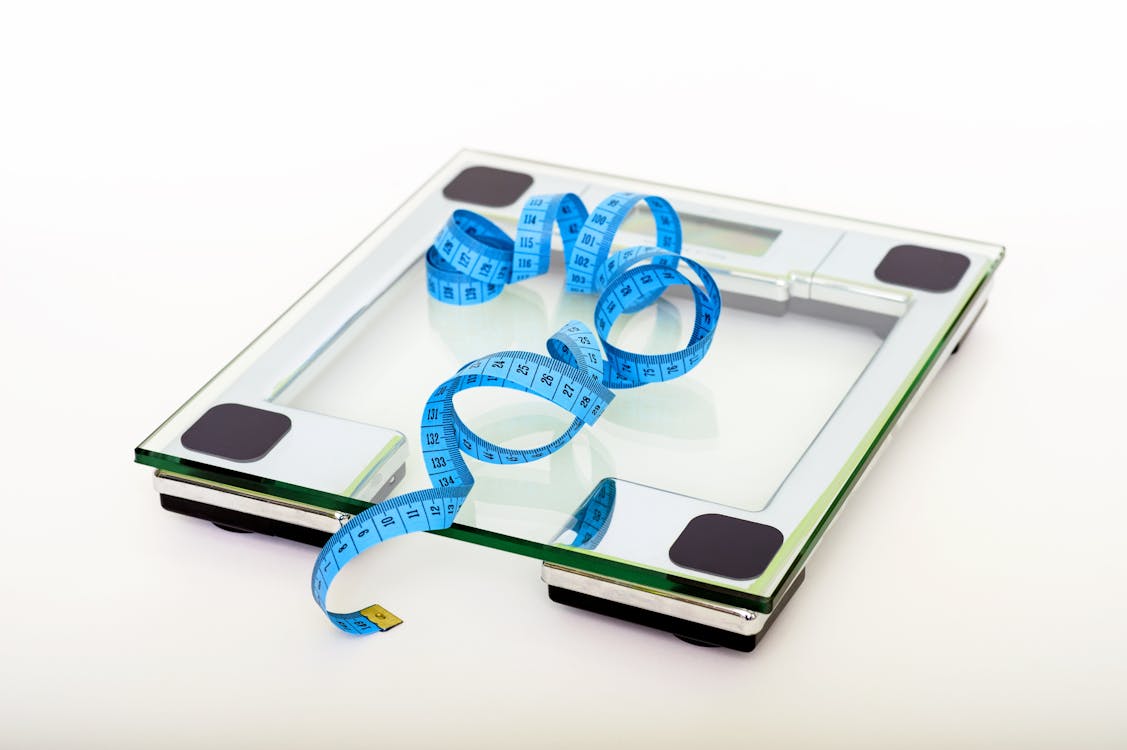
If you are struggling with some excess weight, cycling is an excellent way to get rid of that problem. Even though cycling is a low-impact activity, it still burns a lot of calories in an hour.
According to research conducted by Harvard University, even if you ride at a relatively leisurely pace of around 12 mph, you will be burning 700+ calories per hour if you are heavier than 185 lbs.
| Calories burned in 30 minutes of cycling | |||
| Activity | 125-pound rider | 155-pound rider | 185-pound rider |
| Bicycling, Stationary: moderate | 210 | 260 | 311 |
| Bicycling, Stationary: vigorous | 315 | 391 | 466 |
| Bicycling: 12-13.9 mph | 240 | 298 | 355 |
| Bicycling: BMX or mountain | 255 | 316 | 377 |
| Bicycling: 14-15.9 mph | 300 | 372 | 444 |
| Bicycling: 16-19 mph | 360 | 446 | 533 |
| Bicycling: > 20 mph | 495 | 614 | 733 |
The secret why cycling is so good for weight loss is that it can be easily performed by anyone. If you are heavily overweight, running is not a good idea as it might destroy your knees. However, there’s no such risk with cycling.
No matter how heavy you are, you can certainly ride a bicycle for at least 10-20 minutes, which will allow you to build stamina and increase the duration of your rides. In a short time, you will be able to ride several hours at a relaxed pace, which is where the serious calorie burn comes from.
Learn More: Cycling For Weight Loss
#7: Riding a Bike Builds Muscle

Most cyclists are not really the epitomes of buff guys with huge muscles and a ripped physique unless we’re talking about track cyclists.
However, building muscles is one of the benefits of riding a bike. Cycling is a resistance activity because you have to exert a lot of power to move the pedals, especially if you want to go hard.
Riding a bike will help you build muscles in the lower part of the body — calves, quads, hamstrings, glutes, and hips — but it also strengthens your abs, lower back, and arms. These are all parts of the body that are active when you’re cycling.
If you want to maximize muscle gain from cycling, make sure to ride as many hills as you can.
When you’re climbing, gravity is pulling you back, which means that you have to produce a lot more power to keep turning the pedals. Do this often and people will stop asking if you’re skipping your leg days.
#8: Cycling Is Good For the Environment
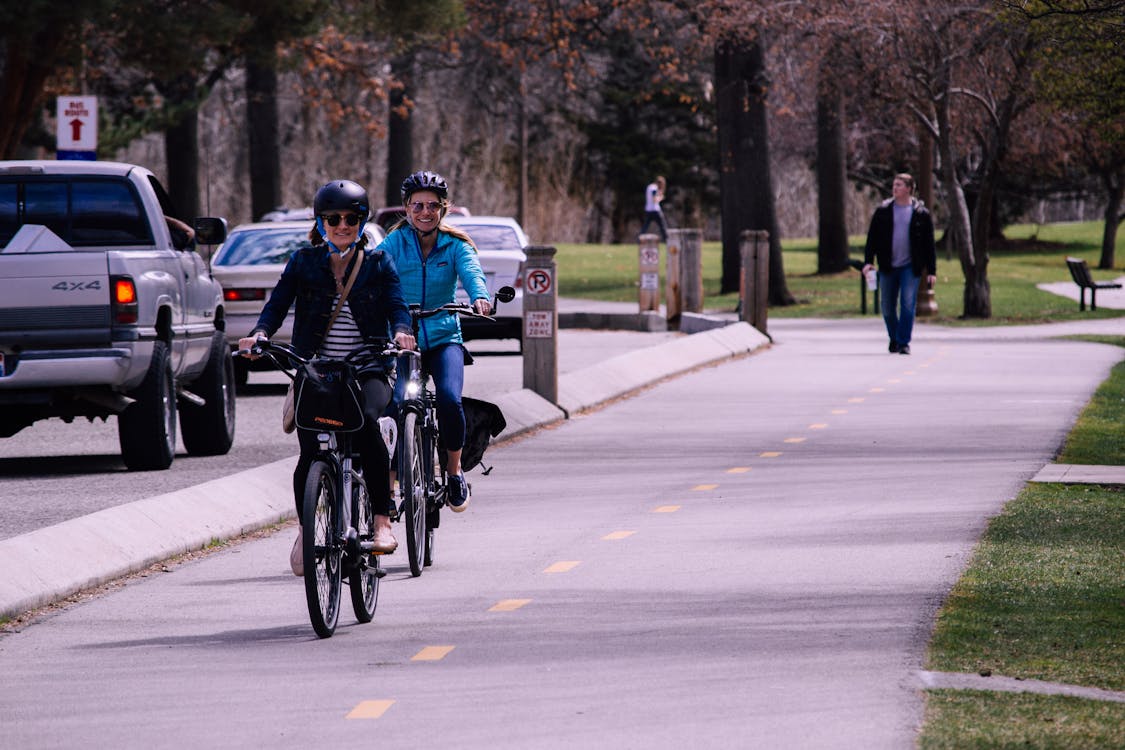
The fact that cars and other motor vehicles are detrimental to the environment has been a well-known fact for quite some time. They produce harmful fumes that impact our health and lead to climate change. Therefore, the more cars we get off the roads, the more grateful our environment will be.
Read more: Can Cycling Alleviate Climate Change?
Some of the most important ways in which leaving your car in the garage and riding your bike more will help the environment include:
- Cycling is the only mode of transportation that produces no harmful emissions. It reduces greenhouse gas emissions and slows down global climate change.
- Riding a bike reduces your carbon footprint.
- Bikes do not require massive parking lots and roadways.
- Cycling reduces congestion and noise pollution.
- The production of bikes uses a lot less energy and fewer resources.
- The process of recycling bicycles is easier and less energy-demanding than recycling cars.
As you can see, if you want to seriously help the environment recover and decrease air pollution, opting to ride a bike instead of driving the car whenever possible is the way to go.
#9: Improves Balance, Coordination, and Posture
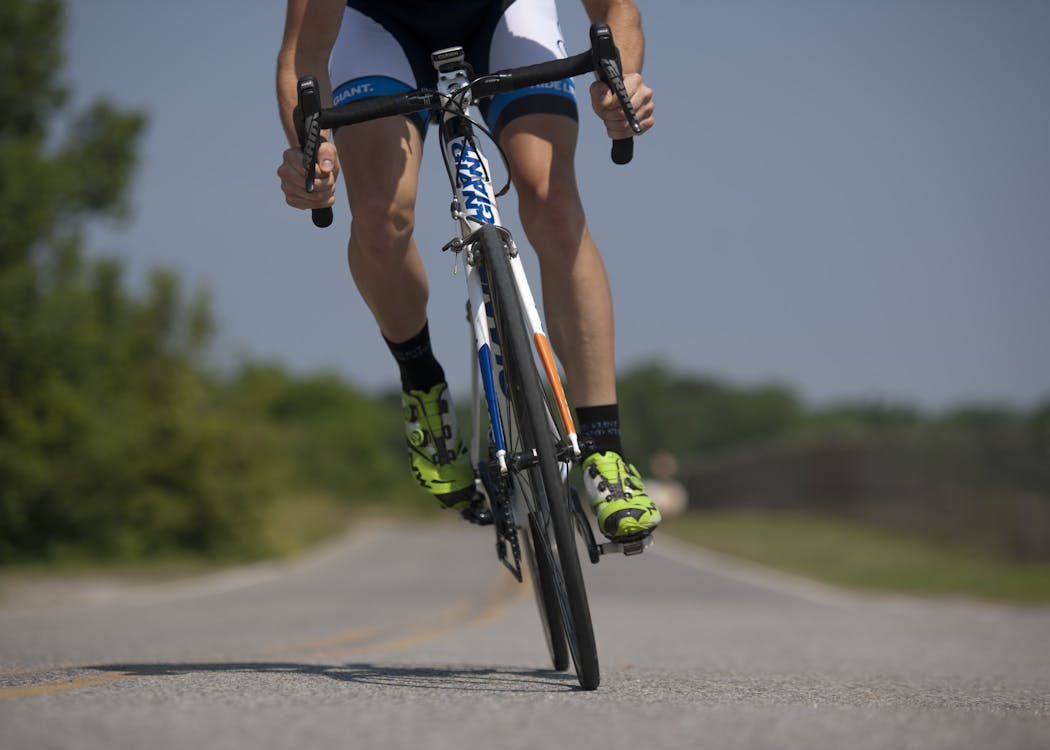
Riding a bicycle requires you to have good balance and coordination. When you first start cycling, you might struggle to ride in a straight line and your movements might be wobbly.
The more you ride, the better your balance will become. This means you will improve your overall balance and coordination as well, especially when you’re walking or running.
Balance is usually not a problem for younger adults, but it tends to decline with age and inactivity. That’s why riding a bicycle can be especially beneficial for older people.
Even though, depending on which type of bike they ride, cyclists are usually slouched over the handlebars, riding a bike is beneficial for your posture as well.
Maintaining a certain position on the bicycle requires you to use your core muscles which become stronger over time and help you maintain a good posture both on and off the bike.
Related: How To Improve Your Cycling
#10: Cycling Helps You Sleep Better

Poor sleep is a major issue that people around the world struggle with, which is often a direct consequence of stress, screen time, and obsession with social media.
However, it seems that cyclists might be sleeping better than other people according to a study from the University of Georgia. Scientists found a clear correlation between sleep quality and cardiorespiratory fitness.
The study observed over 8,000 men and women aged 20 – 85, over a period of 35 years, and concluded that a drop in fitness led to sleep problems.
It seems pretty obvious that riding your bike and getting tired will help you sleep better at night, but now there’s science to back up this claim.
Riding a bike is also known to reduce stress and anxiety, which have a negative effect on sleep quality, which is another reason why cyclists might be sleeping better.
#11: It’s Easy on the Joints
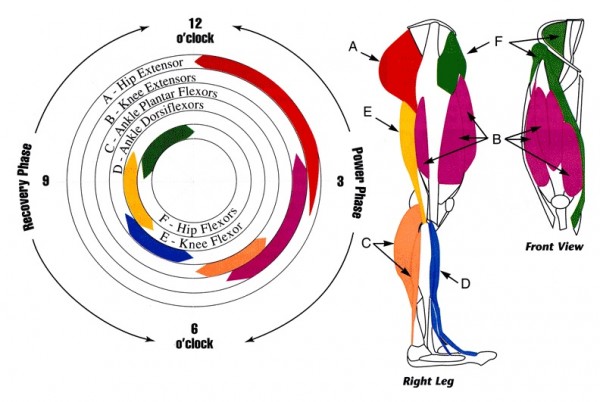
Prevention is one of the biggest health benefits of cycling. Compared to running, cycling is much easier on your joints, especially on the knees. Riding a bike is a low-impact exercise, which means that it is not weight-bearing, so injury rates are lower than in running.
That’s not to say that you should not run — running has a lot of health benefits as well. However, if you’re concerned about the health of your joints or you’re already struggling with an injury, you should know that cycling is pretty safe.
To avoid overuse injuries, make sure to increase distance and power slowly, focusing just on volume and frequency at the beginning of your cycling journey.
A group of researchers at the Appalachian State University in North Carolina conducted a study that showed that long-distance runners suffered more muscle damage, more inflammation and higher Delayed Onset Muscle Soreness (DOMS) compared to cyclists.
Still, this does not mean that you should take cycling lightly and ignore the potential dangers. To minimize overuse injuries on a bike, you should get a professional bike fit which will put your body in an optimal pedaling position.
In the offseason, you should also visit the gym a couple of times a week to do some weight lifting, which will help keep your bone density in check.
#12: A More Efficient Way of Commuting
Living in a large city means that you have to deal with traffic jams and congestion wherever you go. People often spend in excess of two hours in cars or buses commuting to work every day. In most cases, that time can be cut in half by swapping these inefficient means of commute for a bicycle.
Namely, research shows that nearly 30% of trips made by car are a mile or shorter, 40% are two miles or shorter, and 50% are three miles or shorter. These are distances that can be easily covered on a bike.
Riding a bike will keep your weight in check and improve your general health.
Most car drivers view their daily commute as a lost time that they could have used better — perhaps for going to the gym and exercising. By commuting on a bike, you’re also exercising, so you’re doing two things at the same time.
If your office is too far away from your home to comfortably cycle every day, you could ride a part of the road and then take a train, or you could invest in an e-bike.
#13: Cycling Fights Depression

Mental health problems such as depression can be reduced by cycling. Exercising, in general, has a positive effect on depression and mental health, but cycling has an added benefit — spending time outside.
Even if you’re feeling miserable when you get on the saddle, that should quickly change once you start turning the pedals.
Health benefits of cycling include the release of feel-good chemicals such as dopamine, endorphin, and serotonin that have the power to lift your mood. According to a 2013 study, cycling also reduces cortisol levels, which is associated with stress and depression.
Nowadays, more and more GPs are prescribing exercise as one of the main treatments for depression, cycling being the preferred one because of the time spent outside.
To get the biggest mood benefits, you don’t have to spend hours in the saddle — a few 30-minute rides every week will be enough to give you the lift you need.
On top of that, if you choose a cool bike name for your two-wheeler, you’ll also get a new friend which will help you be happier and feel less lonely!
Even though we live in the era of Google Maps and car sat navs, you never know when having good spatial awareness and decent navigation skills might come in handy.
Cycling is an excellent way to work on these skills as it allows you to roam and explore large areas while going slowly enough to observe your surroundings.
Unless you’re willing to invest hundreds of dollars in a cycling computer with GPS capabilities, you’ll have to rely on your natural sense for navigation and pay attention to landmarks.
Related: Best Cycling Apps
#15: Reduces Cancer and Heart Disease Risks
It is already a well-established fact that all forms of exercise may reduce your risk of developing various types of cancer, including bowel cancer and breast cancer.
A recent study conducted at the University of Glasgow showed that you do not have to be a professional athlete to get these benefits of cycling. They concluded that cycling to work at least 30 minutes a day cuts your risk of developing cancer by 50%.
Riding a bike can alleviate side effects of cancer therapy, such as fatigue, poor sleep, low appetite, as well as improve the overall quality of life.
Cycling also keeps your heart healthy by working the muscle itself and getting the blood flowing around the body. By riding your bicycle on a regular basis, you will also lower your chances of becoming overweight and decrease your levels of bad cholesterol and triglycerides.
#16: You Can Have an Extra Snack

When you’re an avid cyclist, maintaining weight is still a problem. However, the problem we’re talking about is trying not to lose too much weight, because you’ll be burning thousands of calories on every ride you do.
So there’s no reason to feel guilty if you have an extra snack or even an entire second breakfast. For many people, that’s a reason enough to take up cycling.
Guilt-free snacks are cyclists’ everyday reality!
Stuffing your mouth with a snickers bar or gulping down a can of coke mid-ride is completely justifiable because you don’t want to bonk on your 100-mile endurance ride.
Even a 30-minute ride to work may burn around 500 calories, so there’s your license to enjoy a few extra snacks during the day.
However, if you’re trying to lose weight, you should be a bit more conscious of your calories in and calories out to be able to maintain a caloric deficit and meet your weight loss goals.
#17: Cycling Can Replace Other Harmful Addictions
Quitting a harmful addiction such as cigarettes, alcohol, or unhealthy foods is really hard, especially if you’re doing it cold turkey.
What people usually end up doing is replacing one harmful addiction with another one, because that’s how the human brain works. We need a new habit to take the place of the old one or we’ll feel empty.
Why not replace a harmful addiction with a positive one, such as cycling? Of course, we are not propagating riding your bike to such extremes that it becomes a problem, but being able to do it to keep your mind off the bad stuff is a big benefit of bike riding.
If you wish to stop smoking or drinking, get a bike and start cycling. Come up with some cycling goals that you want to accomplish and when you get an urge to smoke or drink remind yourself that those actions will interfere with your on-bike goals.
As a result, you should become a healthier and happier person and an inspiration to yourself and others.
#18: Boosts the Immune System

The benefits of cycling on the immune system have been well recognized by numerous studies over the years. Since cycling is an outdoor activity, it has even higher benefits for the immune system than other types of indoor activities.
A study published in the journal Aging Cell looked at 125 amateur cyclists aged 55 to 79 and compared them to healthy individuals who did not exercise regularly. Scientists examined an organ called Thymus, which produces T-cells (a type of immune cell) that usually starts shrinking after the age of 20. However, thymuses in older adults who cycled were working as hard as those of young adults.
Cycling motivates you to spend more time outside and in the sun, which has huge benefits for the strength of your immune system.
By commuting to work on a bike, you’ll also stay away from crowded buses and trains, which are usually infused with germs that could cause various diseases.
However, it’s important to note that cycling can also weaken your immune system, especially after an intense interval session. But that’s nothing proper recovery, nutrition, and sleep can’t take care of.
#19: Become a Happier Person (It’s Science!)

If you’re feeling down and unmotivated to do anything, all you need to do is push yourself enough to get on the saddle. Your bike will do the rest and you will finish your ride rejuvenated and in high spirits. That’s what science says.
Michael Otto, PhD, a professor of psychology at Boston University, says that the mood-enhancement effect is usually felt within five minutes after you begin a moderate exercise.
However, the effects of exercising on your mood, including cycling, are felt long-term as well.
While you’re active, your body secretes feel-good chemicals such as dopamine, serotonin, and endorphin, which give you what’s known as a runner’s high.
But, this feeling is applicable to all types of endurance sports, not just running.
Moreover, spending time outside, riding a certain distance, and meeting a sports goal will give you a strong sense of purpose and achievement, which many of us lack during our routine-infused days.
So if you want these benefits of biking, consider getting on your bike a few times a week and going for a moderate ride.
#20: Cycling Improves Your Sex Life
Did you know riding a bike can help you become a better lover? Wearing lycra and looking irresistible in it is a strong factor, but it’s not the only reason behind it.
Good blood flow in your delicate region is crucial for proper sex performance in both men and women. Luckily for cyclists, being more physically active improves your vascular health, which will boost your sex drive and keep everything in working order.
Moreover, cycling builds all of the essential muscle groups that are used during sexual intercourse, such as glutes, quads, hamstrings, and core. Therefore, the more developed these muscles are, the longer and more enjoyable intercourse will be.
Looking good and feeling good in your skin is also an important factor when it comes to a fulfilled sex life. If you feel confident showing off your lean cycling body in lycra to strangers, imagine how confident you will feel in bed with your significant other. It’s a powerful benefit of bike riding that not many talk about.
#21: Anyone Can Do It

One of the biggest benefits of cycling is that anyone can do it. No matter how fit you are and whether or not you come from an athletic background, you can get on a bike and start turning the pedals.
You can approach cycling as a performance and goal-oriented athlete, aiming to smash personal records, race, and steal KOMs or QOMs. You can also ride your bike to commute to and from work, lose weight, or spend some quality time with your friends and family.
There are no discriminations in the cycling world. Whether you ride a road, mountain, city, hybrid, folding, electric, or any other kind of bike, you will be part of the community.
FAQ
What muscles does biking/cycling work?
Cycling mostly strengthens the muscles in your lower body. The most active muscles when you’re turning the pedals are your quads and calves, but hamstrings and glutes work hard as well. Sitting on the saddle also engages your abs and lower back, and your arms get a good workout as well while holding the handlebar and maintaining an upright posture.
Is biking cardio?
Yes, riding a bike is considered to be a cardio exercise. Easy to moderate cycling develops your aerobic capacity, whereas sprints and hard intervals boost your anaerobic fitness. As a result, riding a bike will burn more than 1,000 calories an hour, depending on how hard you go.
Is riding a bike good exercise?
Yes, riding a bike is an excellent exercise. It works the muscles in your lower body, as well as your core and arms. It also burns a lot of calories and strengthens your heart and lungs. Cycling is much easier on the joints than running, so overuse injuries of muscles and joints are much less common.
Is biking/cycling good for you?
Yes, cycling is a very good activity for your mind and body. Riding a bike has numerous benefits that will make you a healthier and happier individual. It can help you lose weight, lower heart disease and cancer risks, improve immunity, and so much more.
What does cycling do with your body?
Cycling is extremely beneficial for your entire body. It will help you build muscles in your legs, hips, and glutes, as well as strengthen your core. Biking will also help you improve your balance and posture, which are crucial when riding a bike. Your heart and lung fitness will improve as well, as cycling is a powerful cardio exercise.
Is cycling good for weight loss?
Yes, cycling is one of the best exercises for weight loss. Depending on how heavy you are and how hard you ride, cycling can burn anywhere between 400 and 1,500+ calories per hour. So, does riding a bike help you lose weight? It absolutely does.
But, how good is bike riding for losing weight? The main reason why cycling is good for weight loss is that it is a low-impact exercise, so you can do it for much longer than running. Also, the risk of suffering an overuse injury even if you weigh 300+ lbs is pretty low if you take things slowly.
What is cycling good for?
Cycling is good for your entire body. It will strengthen your muscles, help you build muscle, burn fat, boost your lung capacity, and improve your heart health. Cycling is also very good for your mental health, as science has proven that riding a bike can alleviate stress and anxiety, fight depression, and make you a healthier person overall.
How good is bicycle riding for exercise?
Bicycle riding is an excellent type of exercise for a variety of reasons. It is a low-impact activity, which means it does not damage your joints and it feels pretty easy on your overall musculoskeletal system. Cycling also burns a lot of calories, strengthens and builds your muscles, and improves your overall fitness.




